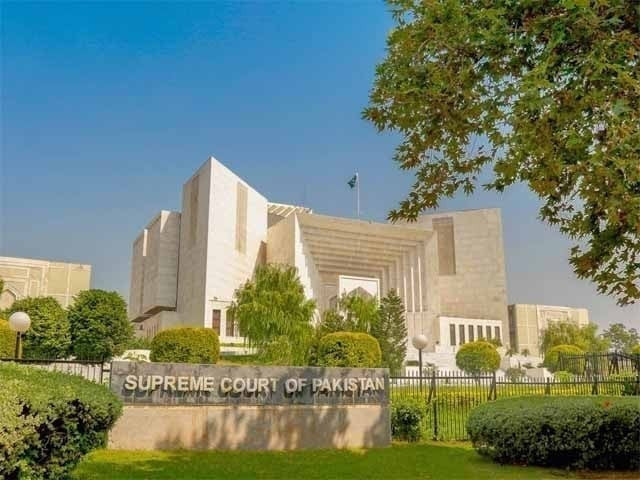SC maintains stay on SHC order on tax collections by Cantts
Bench refers sugar price issue to larger bench

The Supreme Court maintained its stay order against a Sindh High Court (SHC) order to the cantonment boards to refund the tax amount collected under the property laws of 1958, and asked the Sindh’s advocate general to take fresh instructions from the provincial government.
A five-judge larger bench, led by Justice Mansoor Ali Shah, heard the appeal of the federal government against the SHC decision regarding tax collection in cantonment boards. The bench allowed the boards to collect the taxes until the next date of hearing.
According to the appeal, a presidential order was issued in 1979 on the property tax law of 1958 and in 1985, the then Gen Ziaul Haq’s regime gave the presidential order a constitutional cover. The 18th Amendment in 2010 also did not touch the matter.
The court was told that the collection of tax by the cantonment boards was federal, and not a provincial, matter. During the hearing, Justice asked as to why the Sindh government did not make the law a provincial subject by enacting legislation.
Read Justice Naeem takes oath as SC judge
Barrister Ayyan Memon, the lawyer for the private petitioners, argued that in 1988, the Supreme Court had laid down the principle that the measures protected under Article 270 of the Constitution could be reviewed and declared null and void.
The bench gave time to the Sindh advocate general to take instructions from the provincial government about any legislation. Until the next hearing on April 22, it said, the boards could collect tax under the 1958 Act, as the injunction against the SHC decision to refund the tax collected would remain intact.
Meanwhile, a three-member bench, led by Justice Shah heard the case related to the determination of sugar prices. The counsel for the sugar mills informed the bench that the case challenged the Price Fixing Act, 1977.
The bench referred the matter to the administrative committee for the constitution of a larger bench for further hearing of the case. The case was adjourned for an indefinite period.
The bench also took up a case against additional tax in electricity bills. The counsel for the petitioners said that the Registration Act was not applicable to the petitioner institutions.
He added that the general sales tax (GST) was already being paid by the institutions.
The court issued notices to all parties, including the federal government on the petitions and adjourned the case until April 25.



















COMMENTS
Comments are moderated and generally will be posted if they are on-topic and not abusive.
For more information, please see our Comments FAQ